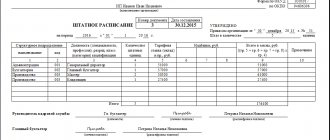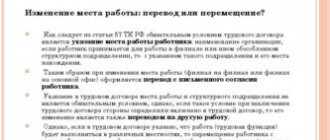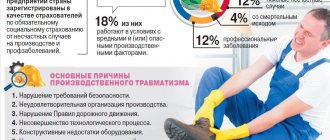A few days ago, an acquaintance approached me with a request to file a complaint with the court. In fact, his situation is extremely difficult and requires special study. In order not to confuse anything, I turned to the Labor Code to refresh my memory as to how the issue of production needs stands under the Labor Code of the Russian Federation in 2021. Actually, I already knew that many employers use these two words like a powerful magic spell, but I thought that it was not so intense.
My new client has a boss who has gotten into the habit of forcing employees to go to work on weekends, explaining everything with production necessity (PN). Not only did he simply not give people a full rest, but he also did not pay for this work in the amount established by law. Well, we decided not to give up and file a complaint against this comrade with three authorities at once: the prosecutor’s office, the labor inspectorate and the court. Now we are waiting for an answer, and in order not to lose my “remembered” knowledge, I am writing this note.
The concept of production necessity in the Labor Code of the Russian Federation
What is production necessity?
In labor law there is no single definition of production necessity.
The mention of it in legislative documents relates to certain circumstances and is stipulated in some articles:
- Article 101 of the Labor Code of the Russian Federation.
- Article 125 of the Labor Code of the Russian Federation.
- Article 113 of the Labor Code of the Russian Federation.
- Article 99 of the Labor Code of the Russian Federation.
- Article 72.2 part 2 and 3 of the Labor Code of the Russian Federation.
- Federal Law - N 417 dated December 7, 2011.
Here we mean the following situations:
- related to disaster prevention;
- liquidation of the accident and its consequences at the production site;
- to minimize the forces of destruction during a natural disaster;
- to prevent the occurrence of accidents for a number of reasons of any nature;
- prevent property losses;
- provide a replacement for the absent employee.
In everyday work environments, disruptions may occur for economic, technological, technical and organizational reasons. The production need that arises is resolved by the team by order of the enterprise administration. Due to production needs, temporary transfer to another position is permitted.
Procedure for recalling an employee from vacation
Recall from regular leave due to production needs is not an easy procedure. Sometimes the word “production necessity” alone is not enough in an order; inspection organizations may have questions about this.
Besides, one order will not do it. The most difficult thing will be to find a worker who is on vacation. Often people prefer to spend their holidays visiting relatives or parents living in other cities and towns, and some like to “soak up” in warm countries outside their own country. At the same time, no one is obliged to notify their superiors about their plans; this is not enshrined in labor relations legislation. But it is possible that these provisions will be enshrined by the employer in the internal acts of the organization. At the same time, these orders and instructions are advisory in nature for employees, and personnel service employees, for their information, can ask for information about the whereabouts of employees going on vacation.
Before calling a vacationer, a memo is written, and after informing the worker about his early return to the workplace, it is necessary to wait for his written consent to this. And after this, the manager has the right to issue an order indicating the reasons for the call. Types of production necessity without the employee’s consent are enshrined in Article 722.
Working beyond the established time limit
The labor legislation of the Russian Federation established a 40-hour working week as the norm for workers of all forms and types of activities, labor agreements and other conditions. According to the Labor Code of the Russian Federation, processing in excess of the legal norm is allowed.
This means that an employee can work for additional pay more hours than is required according to the norm in a shift or in one working day, as well as in excess of the hours of the accounting period. Processing is allowed up to 2 hours per day, up to 120 hours per year.
Article 99 of the Labor Code of the Russian Federation outlines the conditions for such work:
- The decision on production necessity comes from the employer.
- Activities are carried out beyond the established time limits to complete the work started.
- To carry out the repair process, eliminate the causes, in order to avoid stopping the plant.
- In continuous production, the absence of a shift worker is grounds for overtime work.
Delay at the employee's workplace at his discretion is not overtime work and is not paid. Sometimes an employer has the right to involve an employee in overtime work without his consent.
This is acceptable if:
- there is a need to prevent threatening production circumstances (man-made disasters, accidents, destructive phenomena);
- violations were discovered in the supply of water or gas, heat and electricity, problems with transport and communications;
- an emergency occurred (fire, flood, etc.).
In what cases can employers not call subordinates back from vacation?
It is impossible to force an employee to go to work according to the production necessity established (as amended in 2017) by the Labor Code of the Russian Federation if the performance of new duties is impossible due to the health of the subordinate. It is also impossible to involve workers in new work for more than one month within one calendar year. You can be called back from vacation more than once, but only if the month period during the period of these calls has not expired.
The decision of the Russian Supreme Court No. 2 of March 17, 2004 established that an employee’s written refusal to take leave will not constitute a disciplinary offense, and management has no right to punish the employee for this.
Work on legal rest days
Work on weekends
In all countries of the world there are days when a person can rest, that is, he has legal rest time. Article 113 of the Labor Code of the Russian Federation stipulates that on these days the employee is prohibited from being involved in work.
However, sometimes a situation arises that requires mandatory, urgent action, regardless of the day off or holiday. The current unusual situation may pose a threat to the peace and well-being of the population.
In the modern world, disasters, natural disasters, and man-made accidents occurring at an enterprise are not uncommon. Here it is necessary to organize operational protective actions. To carry out urgent urgent activities in order to prevent accidents, destruction, and all kinds of property damage, labor activities are allowed on weekends.
The same rules apply to workers in the media, cinema, theater, and people employed in the creative field. Social and labor relations under such a labor regime are regulated by commissions that deal with labor issues, consider collective agreements and regulatory agreements.
Payment corresponds to the exclusivity of the moment:
- Workers with piecework basic pay are given double earnings.
- Workers with daily and hourly rates receive double payment in accordance with the basic rate.
- According to official salary - daily earnings for one working day are added on top of the salary.
How to properly recall a worker from vacation?
In order to avoid future problems with labor inspection organizations, the order must reflect the following information:
- Justification of production necessity.
- If the employee plans to return to work after the recall, then this date must be indicated; if he plans to take further rest, then indicate the duration of the recall.
- In case of unfinished vacation, the method of using the remaining days is indicated.
- Data on recalculation of vacation pay and wages.
Who should not be attracted
Production difficulties are solved by collective work. The Labor Code and numerous government documents stipulate certain nuances regarding the involvement of employees in urgent activities, indicating who can and cannot be mobilized for these matters. Those categories who are not allowed to participate in the work include:
- women during pregnancy;
- minors.
The employer must first obtain written confirmation from the employee for overtime work. Among employers, a statement from the employee, stated in any form, is distributed as a written expression of will of the employee.
Not involved:
- working disabled people;
- women with young children;
- single parents with children under 5 years of age;
- employees who care for disabled children;
- for caring for sick relatives (confirmation by medical documents);
- guardians of young children.
It is important for a manager to know medical indications so as not to violate the legal rights of employees.
What is a memo?
The note describes all aspects of the unexpected situation that occurred and indicates the reasons for calling the employee to work. The text of the note is formatted in any form. A sample could be like this:
In connection with the changes that have occurred in the well-established work of the workforce (excavator operator Vladimir Ivanovich Ivanov’s illness), I propose calling citizen Nikolai Anatolyevich Petrov from his next paid leave to prevent the production process from stopping for the period until citizen V.I. Ivanov fully recovers.
The note is drawn up by the head of the team or site where the vacationer works. He submits it to the immediate production manager for resolution. He, in turn, can refuse, agree, or make his own changes to the text of the note, for example, call another citizen back from vacation, if there is one.
Restrictions for the employer
Let us note that the concept of production necessity in the Labor Code is by no means a panacea. Current legislation limits the rights of the employing company even in situations of production necessity. Four key points can be highlighted.
Medical indications
It is prohibited to transfer an employee to a position that is contraindicated for him due to health reasons. For example, due to an emergency situation, the company decided to transfer a janitor to a warehouse, where he will have to move large items. Before implementing this measure, management should ask whether the employee has a certificate indicating that he is prohibited from lifting heavy objects. Ignoring this measure will lead to the imposition of fines during inspections by regulatory authorities.
Read more: Species and assortment composition of wood
Deadlines
The maximum period for transferring a specialist to another position is one calendar month. After the specified period has expired, the employee must be returned to performing “usual” functions (Article 72.2 of the Labor Code of the Russian Federation).
Qualification
Transfer of a specialist to a position requiring a lower qualification is permitted only with his written consent (Article 72.2 of the Labor Code of the Russian Federation). For example, an economist can be involved in performing the functions of a laborer or loader only in a situation where he himself does not object to such a measure.
Moving location
An employee can only be transferred within the company. This means that it can be moved within the parent organization or between branches that are not separate legal entities. It is impossible to force an employee to take an unfilled position in another LLC.
Reasons for postponing vacation in special cases
In addition to purely personal reasons for which the period for granting EOO can be changed (Labor Code of the Russian Federation, Article 124), there is also a whole set of objective conditions under which an employee can change his guaranteed leave.
Such reasons include:
- If an employee is ill and receives benefits under a temporary disability certificate (sick leave) during the period of the main SOO, then such a main vacation period can be postponed to another date.
- Another reason why the period of the main LEO may be changed is the performance by the employee, as a citizen, of any public or state duties that coincided in time with the period of the LEO. This could be, for example, a call to military training for those who are registered as liable for military service. This also includes the employee’s participation in the election commission, in a jury trial, etc.
- If an employee is a student of the faculty on a correspondence course at colleges or universities, then he has the right to join the main SOO on a legally guaranteed study leave for the period of the session and passing state exams (defense of the thesis).
As you can see, there are several options for how the LOO period can change, due to reasons that can, under certain conditions, be attributed to production necessity. This does not in any way detract from the employer’s right to optimize such deadlines in the interests of the company.









